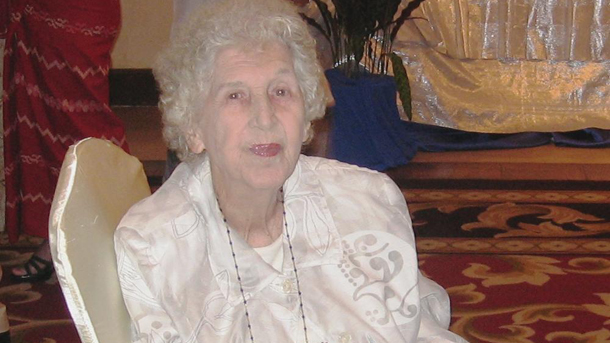RANGOON — The British Council Library in Rangoon is Burma’s leading authority on history and culture, but one woman is owed a huge debt of gratitude for preserving its peerless collection.
Monica Mya Maung first arrived in Rangoon in October 1937 as the English wife of Burmese barrister Percy Mya Maung, the son of a judge who had graduated from St John’s College, Cambridge.
When the British Council library opened in 1947, “Auntie Monica,” as she was affectionately known, began helping out in her spare time. But when former dictator Gen Ne Win orchestrated a military coup in 1962, his troops overran the library, and ordered it closed and the books sold off.
A sharp-witted Auntie Monica quickly hid 500 Burmese history tomes under tables and in surreptitious cubbyholes inside the embassy to save them from the purge. She then kept the library running in secret until the British Council was finally allowed to reopen in Rangoon in 1973.
“She was so energetic, and such a wonderful woman—an example,” the current Library Information Manager Moe Moe Soe told The Irrawaddy. “She loved Burma and the Burmese people and she always felt like this was her home. She continued to work part-time here even after she retired.”
And it is thanks to Auntie Monica’s daring actions that such irreplaceable titles such as: “Burma Past and Present, Journal of a Residence in the Burnham Empire” and “The Economics of the Central Chin Tribe” remain available to scholars today.
However, not everyone took to Auntie’s Monica’s iron-willed approach and for a time she remained ostracized in the stuffy colonial circles of her British countrymen. But she cared little for such pretensions and threw herself headfirst into her new Burmese kinfolk.
On her first day in Rangoon, Monica was pictured in the newspaper in Burmese silk attire praying barefoot at the Shwedagon Pagoda, ostensibly to placate her in-laws who did not approve of their son’s choice of wife.
The alliteration-brimming headline, “Burmese Barrister Brings Back Beautiful Buddhist British Bride!” caused scandal amongst her jingoistic compatriots when it appeared in the next day’s newspaper. In the unenlightened 1930s, no Burmese person, not even the acting governor Sir Joseph Maung Gyi, was permitted to be a member of an English club. But it was not long before Monica, born June 5, 1914, became a stalwart of Rangoon society, cutting through even the ruthless military hierarchy of the day.
“She taught all the ambassadors wives English as there were lots of them from all over the world,” said Moe Moe Soe. “She even taught English to the three grandsons of Ne Win as well.”
Auntie Monica never had any children of her own but adopted with her husband instead. She stayed in the same low teak house in Rangoon even when he died in 1987. Although she attempted to move back to England, Auntie Monica quickly returned to Burma knowing finally where her true home was.
“I remember just once when she watched the year 2000 celebrations in London on the television she turned to us and asked ‘why am I here?’ as if she was missing out not being there with her relatives,” recalled Moe Moe Soe.
Monica Mya Maung was awarded an MBE [Member of the Most Excellent Order of the British Empire] in 1979 and died in 2008 at the age of 91 having worked at the British Council for 38 years. She had lived through Japanese bombings, occupation, house arrest, and plague outbreaks, and had continued teaching into her 90s.
“I’ve never known an English lady like her. She saw people as human beings, and loved books and loved to read,” added Moe Moe Soe.
And Moe Moe Soe is already living up to her legendary predecessor and has herself become a celebrity of the institution. Similarly known as “Auntie Moe,” under her stewardship the library has continued to flourish.
Each day around 1,200 visitors come to the British Council in Rangoon to develop their knowledge and skills and it remains the country’s sole uncensored reading facility. When Auntie Moe admits to thoughts of retirement a nearby colleague immediately chimes in with, “Oh no you’re not!”
Clearly the spirit of Auntie Monica lives on.
















